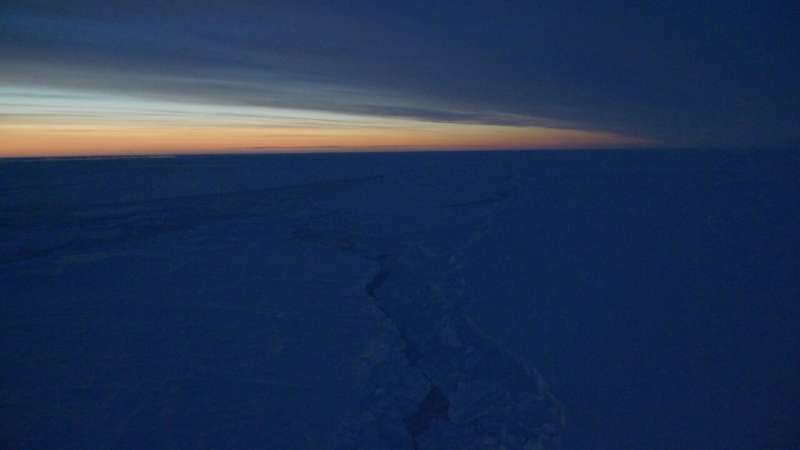The sun will be low in the sky, hopefully just above the mountains of the Antarctic peninsula to the east of us. As a meteorologist I am normally a big fan of clouds but on this one occasion I'm hoping they stay away."
Total solar eclipses provide researchers with an opportunity to understand how switching the Sun on and off affects space weather—the natural fluctuations in the space environment close to Earth, caused by the Sun.
As part of a multi-national campaign, researchers at British Antarctica Survey have placed a low-power magnetometer (LPM), which measures variations in the Earth's magnetic field, directly under the path of the total eclipse. This, along with seven other BAS LPMs already in Antarctica, form part of a network of magnetic and other space weather sensors in both polar regions and in space, making this the most intensive space weather observation campaign yet for an Antarctic eclipse.
Changes in the Earth's magnetic field are caused by electrical currents in the upper atmosphere of both polar regions, created by space weather. These magnetic variations can cause unwanted electrical currents in electricity networks, like the National Grid, which need to be forecasted to avoid damage. These electrical currents are also associated with aurora—the Northern and Southern Lights.
Professor Mervyn Freeman, a space physicist at British Antarctic Survey, says that "we expect solar eclipses to change electrical currents in the upper atmosphere by increasing the electrical resistance of the upper atmosphere—but at the moment we're don't fully understand how."
Changes to Antarctic currents as a result of the eclipse could also indirectly affect currents in the Arctic and in space. These changes can also cause so-called 'traveling ionospheric disturbances' through the upper atmosphere across the globe, affecting sat-nav signals.
Professor Mervyn Freeman adds that "measuring the effects of the solar eclipse will challenge our understanding of space weather and test whether our forecasting models of how space weather affects electricity supply and satellite navigation are correct or need to be improved."



